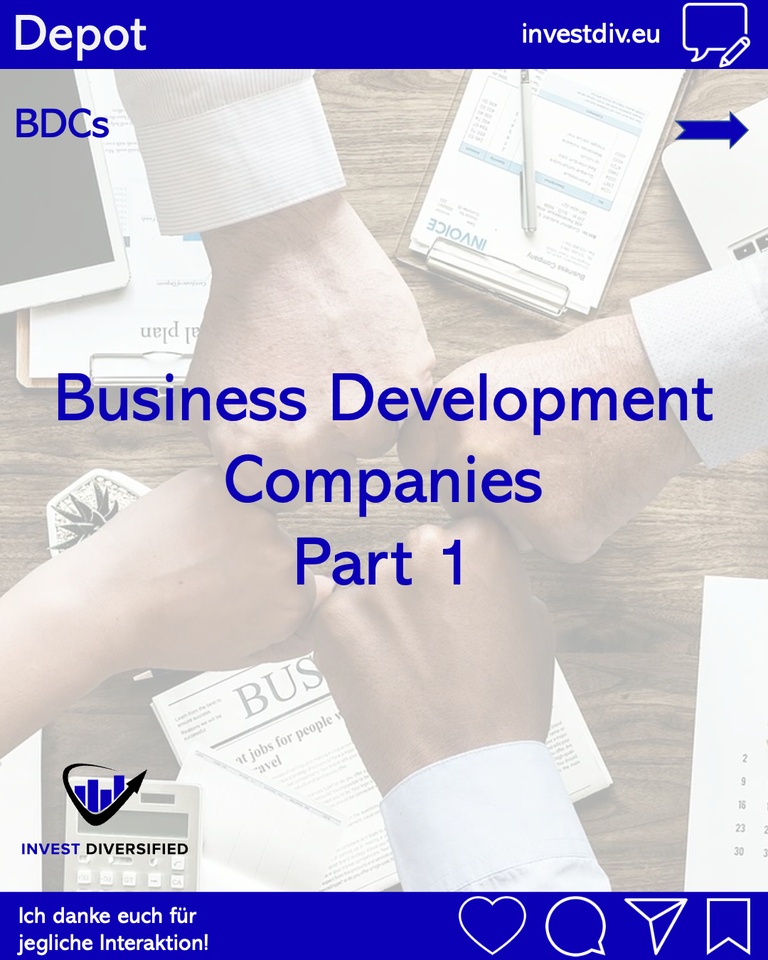🇺🇸 BDCs Part 1 🇺🇸
Hello 🙋♂️. Today there is the 1st part of a BDC series of contributions. Probably these are still the better known info, but there are certainly some who have never come into contact with BDCs.
BDCs in general
Business Development Companies, or BDCs for short, are especially popular with income-oriented investors. Also on Instagram, especially monthly payers like Main Street Capital are recommended again and again. Of course, the focus is then always on the dividend, especially the dividend yield. The higher, the better. What the company does exactly or how you can evaluate a BDC, know the fewest. Therefore, in this series of articles, you will learn a bit more about relevant key figures, albeit highly simplified!
For those who have no idea what a BDC is exactly. It's a publicly traded investment company in the US that is highly regulated. BDCs provide equity or debt capital and management services to small and mid-sized US companies. BDCs must distribute over 90% of profits. In return, they do not have to pay corporate income tax, which is why dividend yields are usually well above average. Furthermore, they are obliged to diversify their portfolio and may only invest in companies with a market capitalization of less than USD 250 million.
Key figures - NAV
One of the most important key figures is the so-called Net Asset Value or NAV for short, which in principle indicates the equity capital.
The NAV results from the assets of the BDC minus all liabilities and can therefore be found in the balance sheet.
If the NAV is set in relation to the market capitalization, there is often a difference. A discount (price < NAV) nennt man Disagio oder Discount. Einen Aufschlag (Kurs > NAV) is called agio or premium. For investors, the discount on the NAV is of course of particular interest, as it ultimately represents a kind of risk-free additional return and leverages the dividend.
Examples:
$MAIN (+0,94%) currently has a premium of 59
$PSEC (+0,47%) has a discount of 32
Key figures - Price/NAV
Did I read "risk free"? Yes great! Then all in BDCs at discount! Moooooment! Of course it's not quite that simple, other metrics also play an important role.
In addition, one should also know that there are some BDCs that were almost constantly valued above NAV, i.e. at a premium. For example, MAIN was even valued in Q1'20 at 0.99x Price/NAV, so "only"' a discount of 1%.



